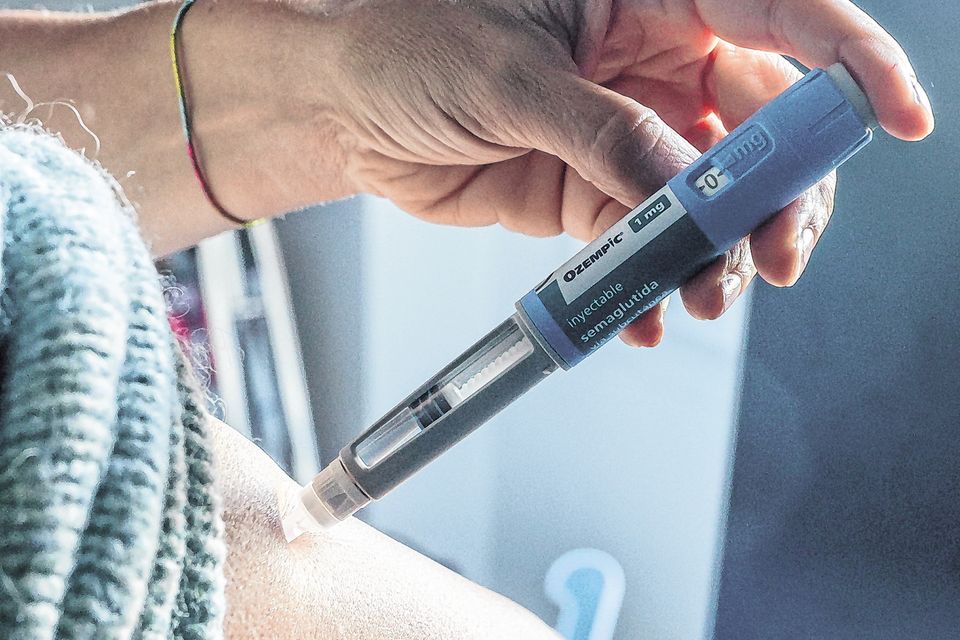Health
HSE Limits Ozempic Dosage for Type 2 Diabetes Patients

Patients receiving the Ozempic injection for type 2 diabetes through Health Service Executive (HSE) programs are restricted to lower doses, according to recent confirmations from HSE officials. This limitation affects approximately 35,000 individuals who access the medication without cost under the HSE-funded medical card and Long-Term Illness Scheme.
The Ozempic injection, which is also prescribed privately and off-label for weight loss, has gained attention for its effectiveness in controlling blood sugar levels. The HSE’s decision to impose dosage restrictions aims to manage resources effectively while ensuring that patients receive necessary treatments within available guidelines.
Background on Ozempic and Its Usage
Introduced as a treatment for type 2 diabetes, Ozempic, a GLP-1 receptor agonist, works by stimulating insulin secretion and inhibiting glucagon release, ultimately lowering blood sugar levels. The drug has become popular not only for diabetes management but also for its side effect of promoting weight loss, leading to its use in off-label scenarios.
The HSE provides Ozempic to patients who qualify under specific health schemes, allowing them access to this medication at no cost. While many patients benefit from the treatment, the current restrictions have raised concerns among healthcare professionals and patients alike regarding the adequacy of dosage for effective glycemic control.
Implications for Patients and Healthcare Providers
The HSE’s limitations on Ozempic dosages may have significant implications for patient care. Health experts indicate that lower doses may not adequately meet the needs of all patients, particularly those with more severe diabetes complications. As a result, healthcare providers must navigate the challenges of providing optimal care within the constraints of the HSE’s guidelines.
Patients reliant on the HSE schemes are encouraged to discuss their treatment options with healthcare providers to explore alternatives or adjustments based on individual health requirements. The conversation around Ozempic and its dosing will likely continue as stakeholders assess the impact of these restrictions on patient outcomes.
In summary, the HSE’s decision to confine Ozempic prescriptions to lower doses for type 2 diabetes patients has sparked discussions about the balance between resource management and patient care. With approximately 35,000 individuals affected, the healthcare community will be monitoring the situation closely to ensure that diabetes care remains effective and accessible.
-

 Top Stories3 months ago
Top Stories3 months agoTributes Surge for 9-Year-Old Leon Briody After Cancer Battle
-

 Entertainment4 months ago
Entertainment4 months agoAimee Osbourne Joins Family for Emotional Tribute to Ozzy
-

 Politics4 months ago
Politics4 months agoDanny Healy-Rae Considers Complaint After Altercation with Garda
-

 Top Stories4 months ago
Top Stories4 months agoIreland Enjoys Summer Heat as Hurricane Erin Approaches Atlantic
-

 World5 months ago
World5 months agoHawaii Commemorates 80 Years Since Hiroshima Bombing with Ceremony
-

 Top Stories3 months ago
Top Stories3 months agoNewcastle West Woman Patricia Foley Found Safe After Urgent Search
-

 Top Stories5 months ago
Top Stories5 months agoFianna Fáil TDs Urgently Consider Maire Geoghegan-Quinn for Presidency
-

 World5 months ago
World5 months agoCouple Convicted of Murdering Two-Year-Old Grandson in Wales
-

 World5 months ago
World5 months agoGaza Aid Distribution Tragedy: 20 Killed Amid Ongoing Violence
-

 World5 months ago
World5 months agoAristocrat Constance Marten and Partner Convicted of Infant Murder
-

 Top Stories4 months ago
Top Stories4 months agoClimbing Errigal: A Must-Do Summer Adventure in Donegal
-

 Top Stories4 months ago
Top Stories4 months agoHike Donegal’s Errigal Mountain NOW for Unforgettable Summer Views









